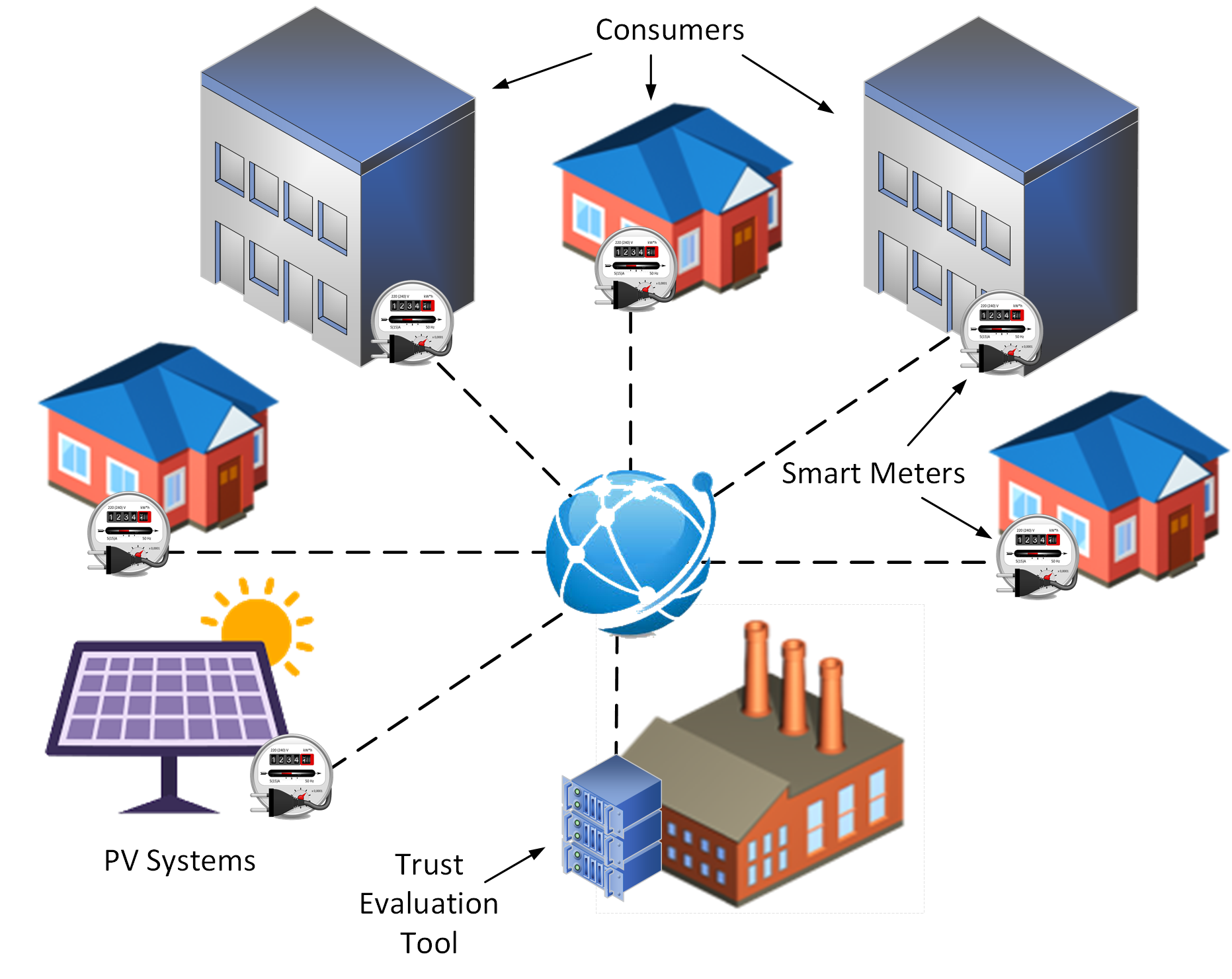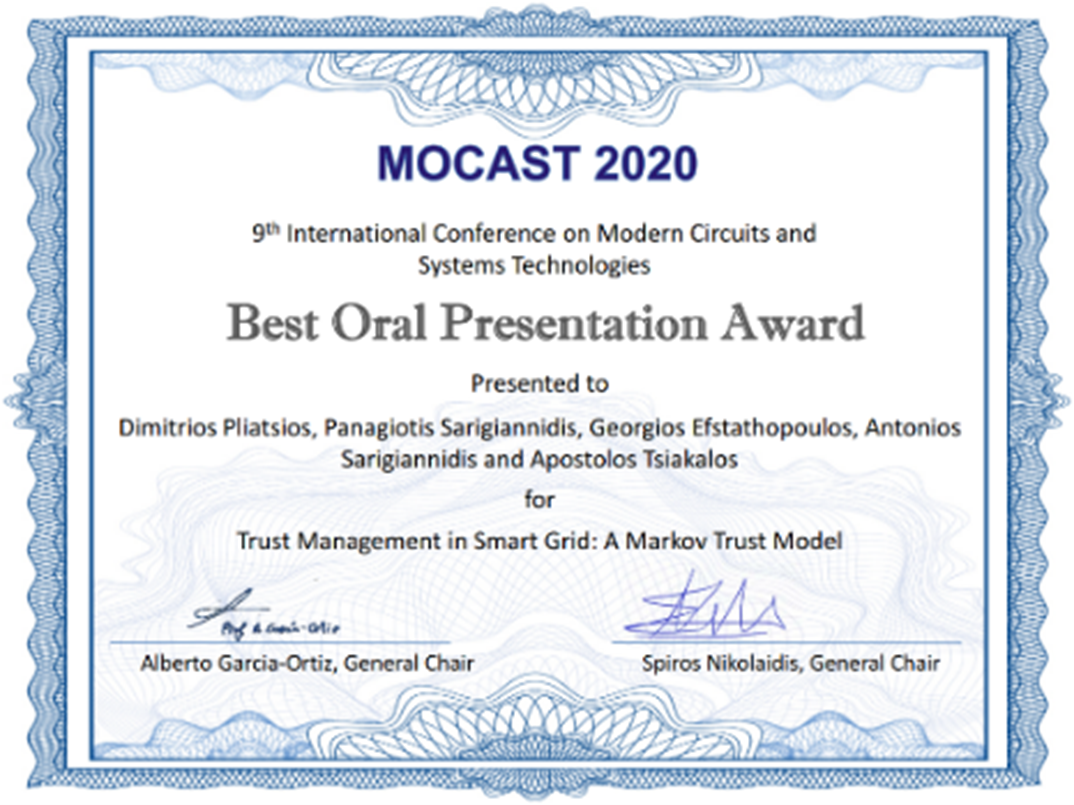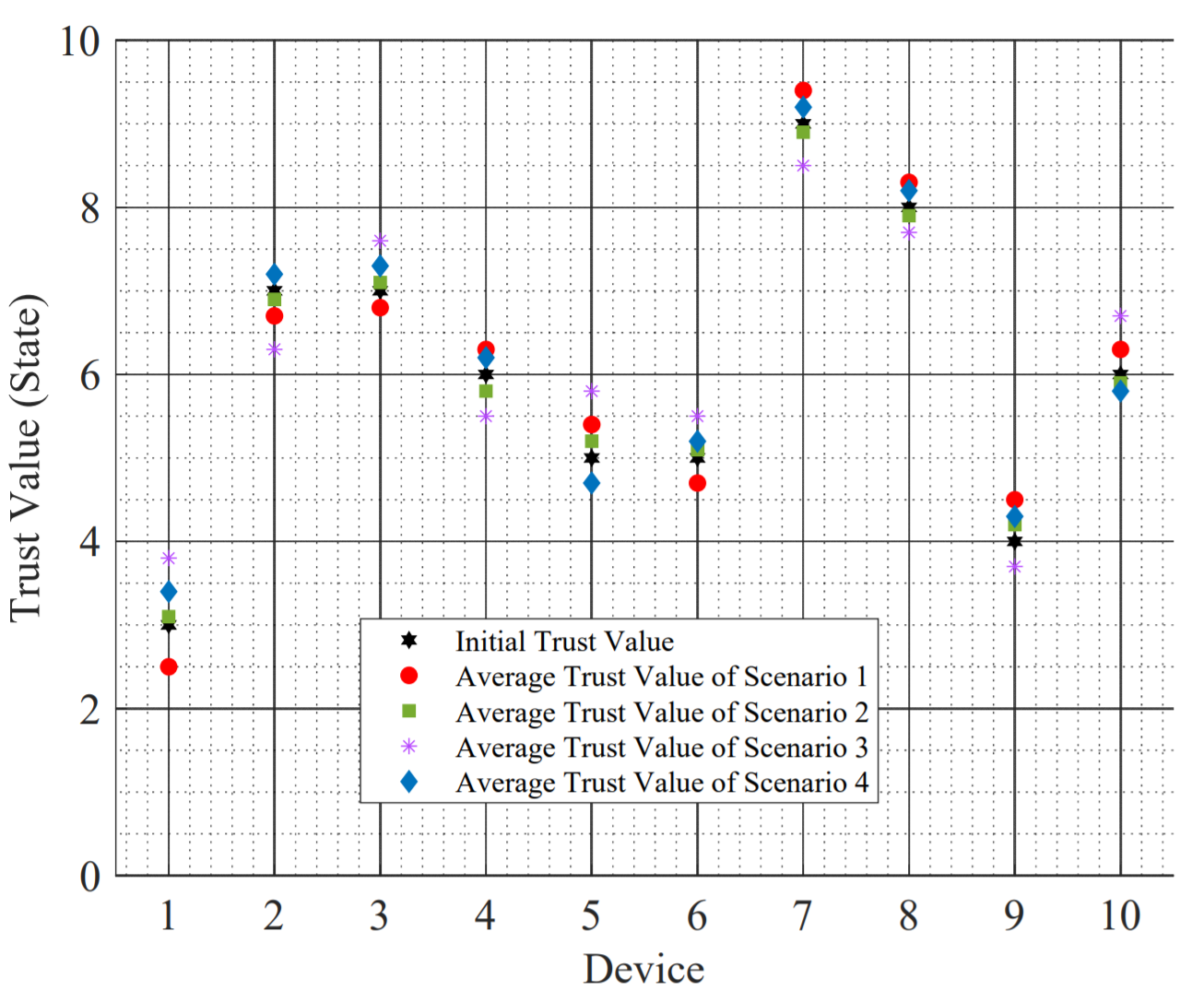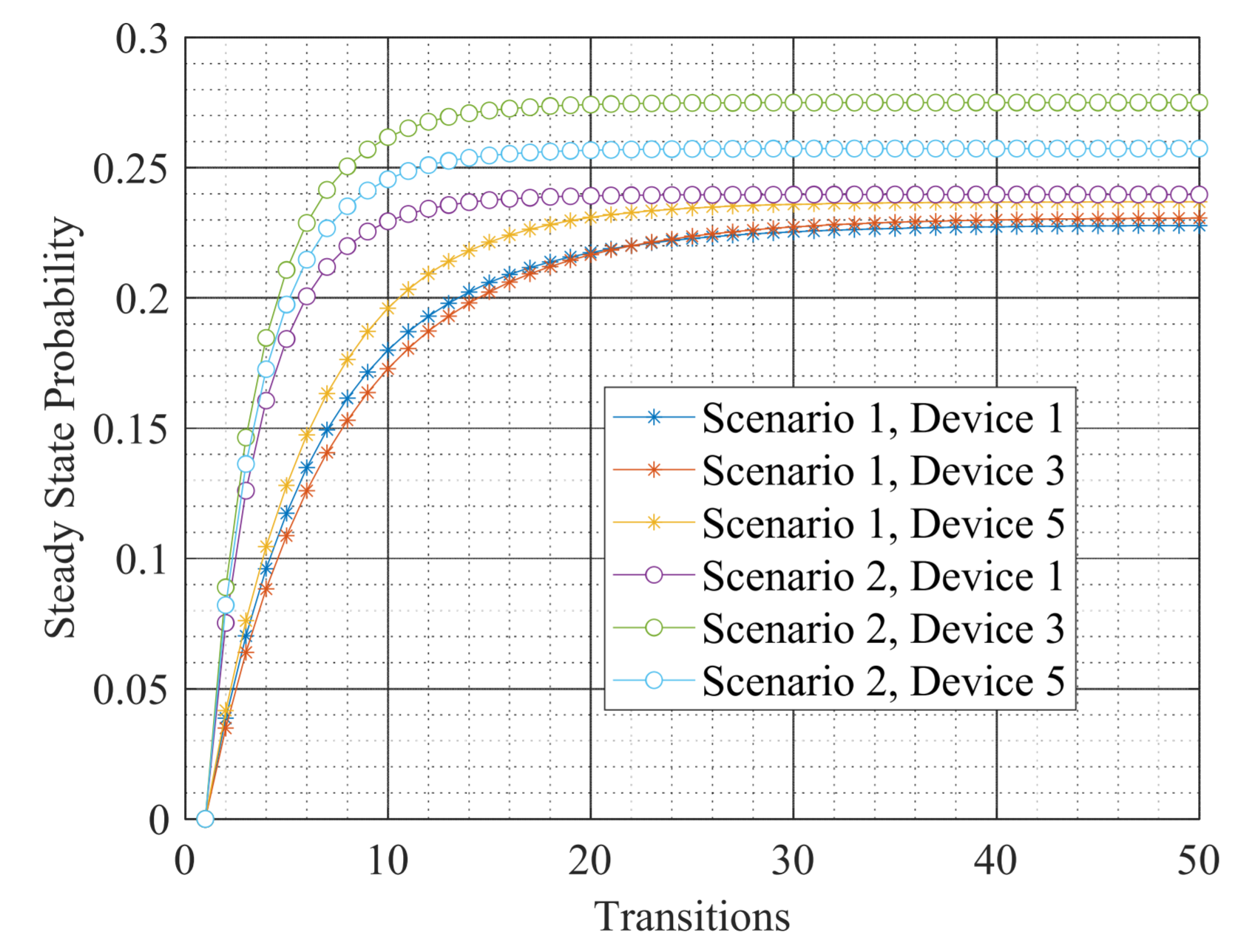Protecting the Smart Grid against Cyberattacks - Can Intrusion Detection Systems be Trusted?
D. Pliatsios, P. Sarigiannidis, G. Efstathopoulos, A. Sarigiannidis, A. Tsiakalos, ‘Trust Management in Smart Grid: A Markov Trust Model’, Proceedings of 10th International Conference on Modern Circuits and Systems Technologies (MOCAST), 2020. [Online] Available: https://zenodo.org/record/4044528

Over the last years, the threat of cyberattacks against critical infrastructures, especially on power systems, has been significantly increased. Cyberattacks against critical infrastructures are exerting a significant impact on society. Smart Grid is an emerging paradigm that leverages the advancements in Information and Communication Technologies (ICT) to deliver a novel power generation, distribution, and consumption network. The smart meters are core components of the Smart Grid, which are deployed throughout the infrastructure. These meters continuously monitor the energy generation, distribution, and consumption throughout the Smart Grid.
Advanced Intrusion Detection and Prevention Systems cannot be always deployed as the Smart Grid devices have low processing and storage capabilities. Our latest work entitled “Trust Management in Smart Grid: A Markov Trust Model” was presented at the 9th International Conference on Modern Circuits and Systems Technologies (MOCAST 2020) and won the Best Oral Presentation Award.
The Trust in Smart Grid Becomes Measurable
- The security of the Smart Grid can be further enhanced by the deployment of a trust scheme alongside an Intrusion Detection System.
- The aim of the trust scheme is to continuously monitor a smart grid device interaction with other devices and evaluate the trust level.
- When a device has irregular behaviour, due to the result of a cyberattack, its trust level will be gradually decreased. To protect the rest of the Smart Grid, when a device's trust level is too low, that device is isolated from the rest of the network.
An Accurate & Scalable Trust Scheme for the Energy Domain
- The proposed trust scheme features an accuracy of up to 100%
- The math behind the model is validated in a realistic simulation environment


